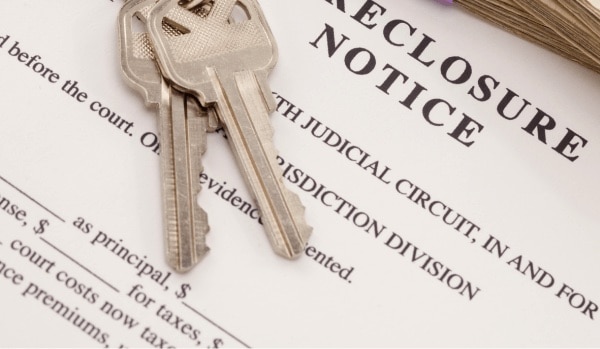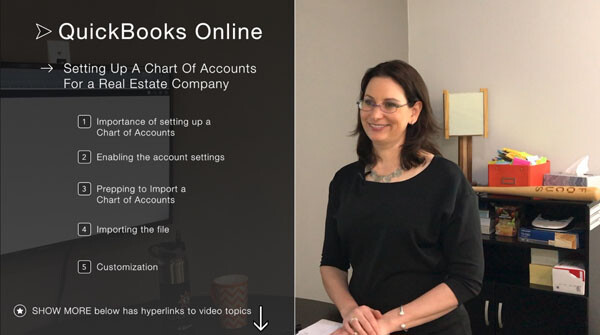You’ve probably heard that investing in Commercial Real Estate (CRE) can be lucrative, and you are right. It can be even more lucrative if you are able to identify and purchase commercial real estate at foreclosure prices.
Find out how you can make money from CRE investments, where you can find CRE at discount prices, and what you need to know before deciding that a foreclosed CRE is a good investment for you.
What Types of Property are Considered CRE?
CRE can be anything from apartment buildings to retail space to industrial space to office buildings. CRE will typically have more than four (4) units and will be classed from Class A to Class D according to the facility’s condition. Here is a breakdown of the most common types of commercial real estate buildings.
Office Buildings
Office buildings are often owned and managed by the same entity. They range from city skyscrapers to mid- and low-rise suburban office parks. Commercial tenants typically lease for five years or more.
Industrial Buildings
Industrial properties are occupied by heavy manufacturing concerns, warehouses, research and development teams, and product assembly businesses.
Retail Space/Buildings
Retail space includes stand-alone buildings, strip malls, and large mall complexes. Often retail space can be found in a mixed-use structure, for example, restaurants and a boutique on the ground floor of an apartment building, or, a newsstand and cafe on the ground floor of an office building.
Multifamily Properties
Apartment buildings, condominium complexes, and townhome communities are considered multifamily CRE if they have more than four separate units. Residential leases are usually for a year and are heavily regulated by state law for tenants’ protection.
Special Purpose Properties
Commercial properties such as car washes, schools, airports, sports stadiums, and self-storage facilities require certain attributes that render a property not readily usable for a different type of business.
Classes of CRE
For investment purposes, you will want to know how the property you are considering purchasing is classed. Class A properties are typically newer construction with high-end finishes and ample amenities in a desirable location. These will earn the highest rent per square foot. By way of contrast, Class D properties are very likely neglected or even uninhabitable and located in an undesirable neighborhood.
While it takes someone with considerable experience in CRE investing to identify a Class D property that can make money, either by rehabilitating it and renting it or if the neighborhood is on the rise, it is possible to buy a Class C property and add value to it to bump it up to Class B expectations, and therefore higher rents.
How CRE Makes Money
CRE makes investors money through rent and appreciation. A third factor is an increase in value brought by the renovation or upgrading an investor does, plus a resulting increase in rent. Yet, a fourth factor is any improvement in the quality of the neighborhood where the property is located, increasing both value and rent.
How Can I Find Foreclosed or Bank-Owned CRE?
If you are new to this, you have two options – you can scour the internet for courthouse listings, advertisements, and online databases such as LoopNet, or you can work with an experienced commercial real estate agent who can readily put his or her hands on everything that is available, on or off-market.
Once you have some experience and have made some connections, you will likely start hearing of CRE investment opportunities through your network.
How Can I Finance a Purchase of Commercial Property?
You can use multiple lenders to finance a purchase of CRE but know that each has its own requirements as to the nature and condition of the property. Here are some options:
- Conventional Business Loan from a lending institution
- Bridge Loan, to bridge the gap between closing on the property and obtaining financing
- Hard Money Loan from a private individual
- Conduit Loan or CMBS loan (Commercial Mortgage-Backed Security)
The problem comes in when the commercial building you are considering is in foreclosure. Some lenders believe foreclosure increases the risk of default, because the property did not perform and service its debt in the past. Other lenders will fail to qualify the property itself either due to its condition or the neighborhood it is in.
Most often, investors in distressed or foreclosed commercial assets must get creative in obtaining financing.
Here are three types of unconventional lending:
Seller Financing
In this case, the seller is the bank that owns the property. The bank is motivated to get this property performing and may work with you to get you your first or second mortgage.
Master Lease Agreement
An investor purchases the CRE with a small or no down payment, and at closing receives what is called “equitable title” entitling him or her to all of the income and tax benefits of the property. In exchange, the seller gets a fixed monthly lease payment from the investor. When the investor improves the property, or if the neighborhood improves, any increase in rent is the investor’s to keep. Often a master lease agreement will also have an option to buy, after so many years.
Joint Venture with the Seller
If the property is distressed but not yet in foreclosure, you have an opportunity to negotiate with the owner/seller for part ownership of the property. For example, if the property has code violations that the owner cannot afford to remediate, an investor could offer to perform that work in exchange for part ownership.
However you proceed with the financing commercial asset, you must do your due diligence.
You Must Do Your Due Diligence with Foreclosed Assets
Not only must you determine what the property is worth, but you have to calculate the potential for profit. Look at the tenants: have they been paying reliably? Check out the condition of the property: can you add value with a renovation or refresh, called “after repair value” or ARV? Look at the location, visibility, and how the property is accessed: will this property attract the kind of tenants you want?
Once you’ve determined the property suits your business intent and financial requirements, you need to get title insurance. After this, you or your agent must conduct a UCC (Uniform Commercial Code) search. The search is conducted to find out if the building or any of its equipment is subject to a lien. If a lien is later discovered, title insurance will protect your interest against that lienholder.
Next, check for open permits with the municipality governing the CRE. Ask if there are or have been any code violations. Get permission from the bank owning the CRE to have the property inspected. Do this especially if the bank insists on an “as-is” sale. Ask for copies of any environmental assessments that have been performed on the property. Do your due diligence.
Commercial real estate foreclosures can be profitable but proceed carefully.
Put Your Best Foot Forward with Commercial Real Estate Foreclosures
The usual way to express interest in a bank-owned commercial property is to submit a letter of intent. However, you can be more proactive and simply contact the bank with your best offer. If it is not good enough and your offer is rejected, don’t be surprised if months later you find that the same property is still bank-owned. Perhaps your offer will get better reception after several months of carrying costs!
In sum, investing in distressed or foreclosed commercial real estate can be lucrative, but requires a bit of homework prior to purchase.








